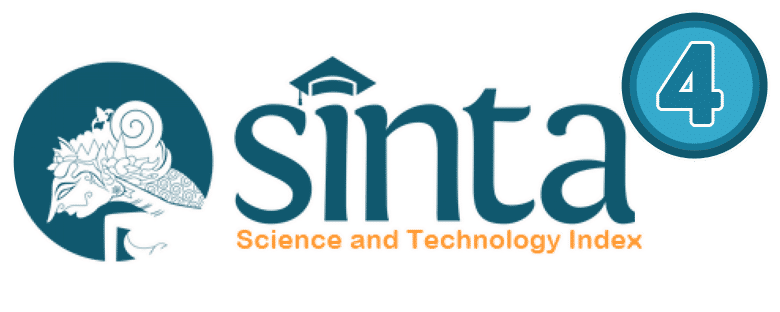Educational Transformation In The Midst Of Globalization and Modernization: Issues and Challenges
DOI:
https://doi.org/10.24114/icp.v5i1.66948Keywords:
Globalization, Educational Transformation, ModernizationAbstract
The transformation of education in the era of globalization and modernization has given rise to serious challenges related to access, quality, and relevance, including gaps in access, the commercialization of education, and the penetration of global culture that threatens local values and national identity. This study aims to deeply analyze the challenges of education in the era of globalization and formulate strategies for developing a sustainable education system that is innovative, inclusive, and based on cultural preservation. This study uses a qualitative literature review method with a descriptive-analytical approach. The research subjects were various literature sources, including books, journal articles, and policy documents related to global and local education issues. Data were collected through desk review techniques and analyzed using content analysis methods to identify key themes and strategic solutions. The results indicate that educational transformation requires technology integration, teacher competency enhancement, character building, and the protection of local values amidst the currents of globalization. The conclusions of this study emphasize that the development of an education system must prioritize sustainable innovation, equitable access, cultural preservation, and resilience to global disruption. The implications of this research are expected to provide a basis for consideration for the government, education practitioners, and policymakers in formulating adaptive and sustainable education policies.References
Abbas, A., & Smith, J. (2023). Gender inequality in education: a comprehensive examination of social science studies. The Critical Review of Social Sciences Studies, 1(01), 11–22.
Abidin, Z., Wibowo, K. A. A., Aswan, A., & Sari, W. (2023). The Impact Commercialization of Education in Bagan Asahan Village Tanjung Balai. Journal Of Education And Teaching Learning (JETL), 5(2), 226–234.
Adhikari, J., Parsons, D., & Mathrani, A. (2012). Bridging Digital Divides in the Learning Process: Challenges and Implications of Integrating ICTs. MLearn, 224–227.
Belawati, T. (2019). Pembelajaran online. Jakarta, Universitas Terbuka, 201.
Bozkurt, A., Jung, I., Xiao, J., Vladimirschi, V., Schuwer, R., Egorov, G., Lambert, S., Al-Freih, M., Pete, J., & Olcott Jr, D. (2020). A global outlook to the interruption of education due to COVID-19 pandemic: Navigating in a time of uncertainty and crisis. Asian Journal of Distance Education, 15(1), 1–126.
Burhaein, E. (2019). Pembelajaran dalam Pandemi COVID-19: Mengapa pendidikan jasmani adaptif penting untuk siswa disabilitas di sekolah luar biasa. Disrupsi Strategi Pembelajaran Olahraga: Serta Tantangan Dalam Menghadapi New Normal Selama Masapandemi Covid, 19, 187–196.
Clifford, V., & Montgomery, C. (2017). Designing an internationationalised curriculum for higher education: embracing the local and the global citizen. Higher Education Research & Development, 36(6), 1138–1151.
Dayu, D. P. K., Rulviana, V., & Kurniawati, R. P. (2022). Pembelajaran Blended Learning Model Case Based Learning pada Implementasi Kurikulum Merdeka. Cv. Ae Media Grafika.
Díaz, M. M. M.-B., Lim, J. R., Iborra, C. P., López, E., Rodríguez, H., López, R., Mazo, C. M., Guerra, A. V., Alvarado, A. Q., & Brooks-Young, S. (2022). The power of curriculum to transform education: How education systems incorporate 21st century skills to prepare students for todays challenges.
Dryden-Peterson, S. (2009). Barriers to accessing primary education in conflict-affected fragile states. Save the Children.
Elfrianto, H., Nasrun, M. S., & Arifin, M. (2023). Buku Ajar Manajemen Pendidikan. umsu press.
Hakim, A. R., & Darojat, J. (2023). Pendidikan multikultural dalam membentuk karakter dan Identitas Nasional. Jurnal Ilmiah Profesi Pendidikan, 8(3), 1337–1346.
Hartono, Y. (2017). Pendidikan nasional dan kualitas manusia Indonesia dalam perspektif sejarah. Agastya: Jurnal Sejarah Dan Pembelajarannya, 7(2), 84–102.
Jacobs, H. H. (2010). Curriculum 21: Essential education for a changing world. ASCD.
Jensen, L. A., Arnett, J. J., & McKenzie, J. (2011). Globalization and cultural identity. Springer.
Kormos, E., & Wisdom, K. (2023). Digital divide and teaching modality: It’s role in technology and instructional strategies. Education and Information Technologies, 28(8), 9985–10003.
Meinck, S., Fraillon, J., & Strietholt, R. (2022). The impact of the COVID-19 pandemic on education: international evidence from the Responses to Educational Disruption Survey (REDS). International Association for the Evaluation of Educational Achievement.
Memon, F. N., & Memon, S. N. (2025). Digital Divide and Equity in Education: Bridging Gaps to Ensure Inclusive Learning. In Impact of Digitalization on Education and Social Sustainability (pp. 107–130). IGI Global.
Permatasari, I., Nau, N. U. W., & Hergianasari, P. (2023). Peran Ngo Dalam Mendukung Sdgs Pendidikan Berkualitas (Studi Kasus: Project Child Indonesia Di Yogyakarta (2018-2022). Jurnal Ilmiah Multidisiplin, 2(04), 19–34.
Prasetia, I. (2022). Metodologi Penelitian Pendekatan Teori dan Praktik. umsu press.
Pratiwi, S. N. (2016). Manajemen berbasis sekolah dalam meningkatkan Kualitas sekolah. EduTech: Jurnal Ilmu Pendidikan Dan Ilmu Sosial, 2(1).
Putera, L. (2022). Peran Guru dan Teknologi Dalam Pembelajaran Abad 21.
Savitri, A. S., Dewi, D. A., & Hayat, R. S. (2024). Upaya Pelestarian Budaya di Era Globalisasi Melalui Pendidikan Kewarganegaraan. Inspirasi Dunia: Jurnal Riset Pendidikan Dan Bahasa, 3(1), 142–149.
Simm, D., & Marvell, A. (2017). Creating global students: Opportunities, challenges and experiences of internationalizing the geography curriculum in higher education. In Journal of Geography in Higher Education (Vol. 41, Issue 4, pp. 467–474). Taylor & Francis.
Downloads
Published
How to Cite
Issue
Section
License
Copyright (c) 2025 Gusman Lesmana, Tetty Muharmi

This work is licensed under a Creative Commons Attribution-ShareAlike 4.0 International License.
Authors who publish with this journal agree to the following terms:
- Authors retain copyright and grant the journal right of first publication with the work simultaneously licensed under a Creative Commons Attribution License that allows others to share the work with an acknowledgement of the work's authorship and initial publication in this journal.
- Authors are able to enter into separate, additional contractual arrangements for the non-exclusive distribution of the journal's published version of the work (e.g., post it to an institutional repository or publish it in a book), with an acknowledgement of its initial publication in this journal.
- Authors are permitted and encouraged to post their work online (e.g., in institutional repositories or on their website) prior to and during the submission process, as it can lead to productive exchanges, as well as earlier and greater citation of published work.







